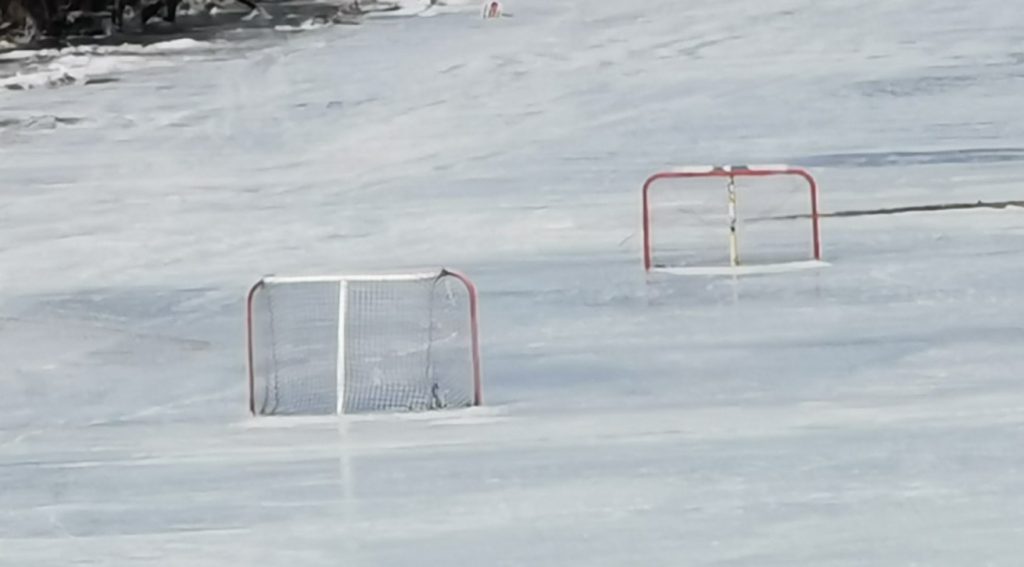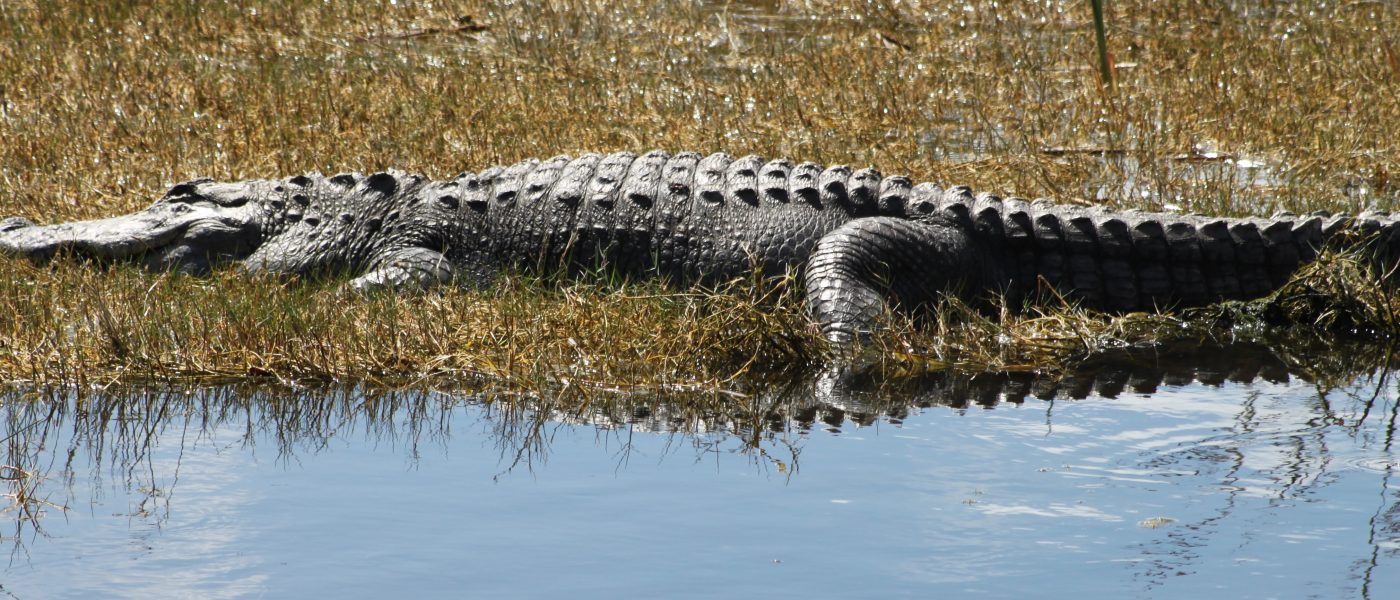Gator found in Jock River ‘not a pet’, expert says
By Messenger Staff
A renowned expert on wildlife in the arctic suspects that an alligator found in the Jock River between Richmond and Manotick was not a released pet.
“This is a direct result of global warming, in my opinion,” said Dr. Loof Lirpa, an expert in the field who travelled to South Carleton from Nuuk, Greenland, when he learned of the strange sighting.
Lirpa said that the reptile spotted in the Jock River is an “ice gator.” They are a rare breed of alligators found mainly in Greenland and Iceland, capable of surviving in deep waters under the winter ice. He added that because of Global Warming, a handful of the gators have worked their way south into Canadian water systems over the past few years.
Known as the Glaciem Crocodilus, or by its Norwegian name of Praktisk Spok in Greenland, Dr. Lirpa said that the animals are more intelligent than traditional North American alligators or South American and Australian crocodiles.
“They are friendly animals, as opposed to the predators that we usually view alligators and crocodiles as,” said Lirpa.
Lirpa compared the animal to an Atlantic bottle-nosed dolphin. The animal was first sighted by a group of boys ice fishing before the ice close to the shore melted.
“I heard my son and his friends yelling so I went out to look,” said Burla Scherzo, whose home backs onto the Jock near where the animal was spotted. “We thought it was a log, but then it moved and it looked like an alligator. We were scared at first, but then it started bouncing the ball with its snout. We were scared, but at the same time, we couldn’t stop watching it.”
Scherzo said she has been living in Canada for 10 years, and wasn’t sure what to think.
“We are always seeing new things in Canada,” she said. “We certainly had no animals like this in Italy.”
Scherzo called the authorities, suspecting that someone had dumped a pet alligator into the river. Lirpa, who has been in Ottawa several times for meetings and consultations with the Canadian Wildlife Federation, was contacted. He is considered the world’s foremost expert on isotope oxygen ratios and rare Arctic sea life.
“I have seen these reptiles in Hudson Bay, but never as far south as this one,” he said. “They are more common in Greenland and the Queen Elizabeth Islands.”
The rare ice gator nearly did not make it. When Lirpa first arrived in the area, he surveyed the Jock from a helicopter owned by the Ontario Ministry of Wildlife. Using high-tech imaging and ultra sound, they discovered the rare animal struggling for his life.
“He was tangled in a hockey net near the Twin Elm bridge,” Lirpa said. “I was with a couple of local divers and we were able to get down there and rescue him. The hockey net must have gone through the ice when it melted.”
Lirpa said that the animals can be trained and domesticated, similar to brown bears that perform in circuses.
“They are not vegetarians, but they eat only fish,” said Lirpa. “We don’t see them as threats to humans. They can also be trained. There is an aquarium in Reykjavik that houses several of them, and they have been taught to perform and do tricks.”

Although there is a gag order on plans for LeBreton Flats, Lirpa speculated that a trained ice gator that could perform tricks would be the perfect attraction for an aquarium in the capital.
“He is safe in captivity now, and he seems happy,” he said.
It is unknown if there are any other alligators in the Jock River.
“I guess if the Jock River Race was running this year we would probably hear if there were more,” Lirpa said.
For Loof Lirpa, this gator is one of the most exciting discoveries he has ever been involved with.
“I have named him Ratog,” he said, adding that the name is “Gator” spelled backwards. “I love to spell things backwards – especially my name, Loof Lirpa.”






